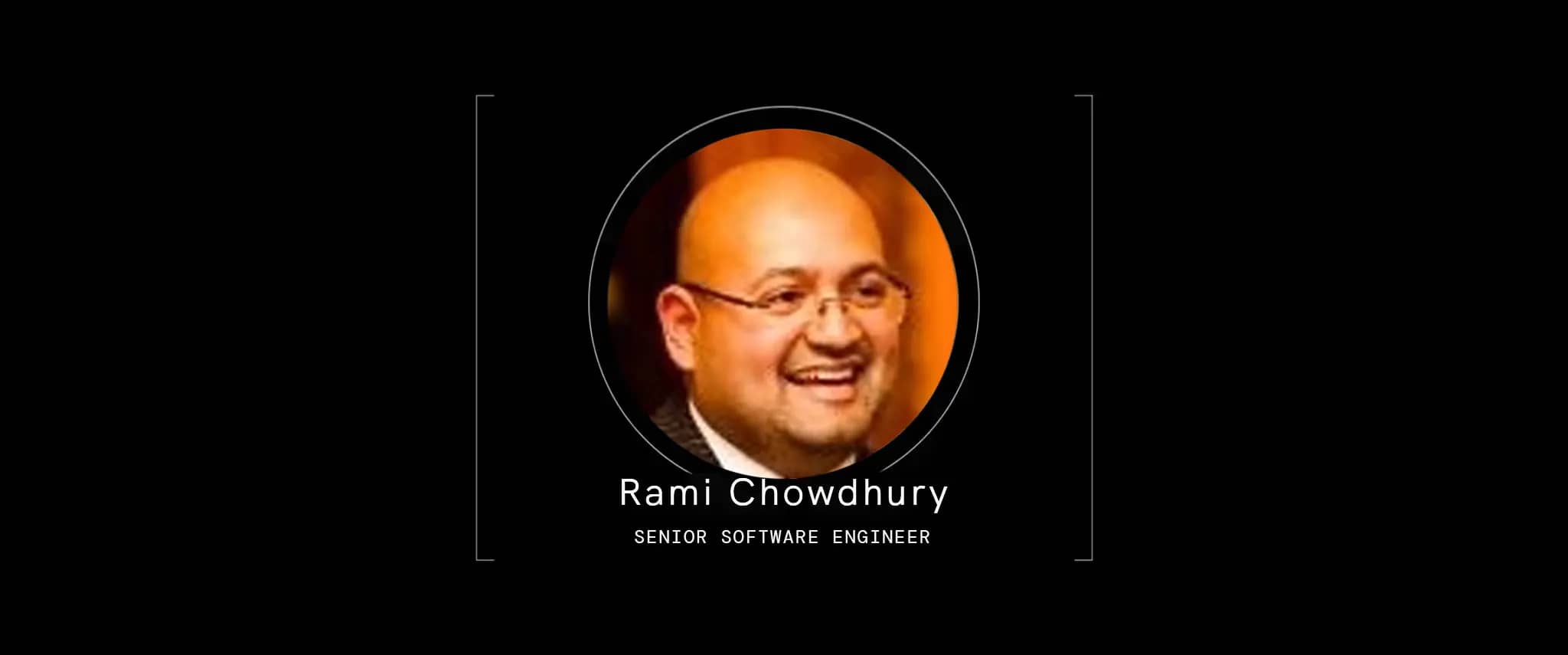
"Software Development is a Team Sport": Meet Rami Chowdhury
Rami Chowdhury just joined SkyFi, and if his first few days are any indication, he’s exactly the kind of engineer that thrives in a startup environment. “I've been told by various people that I picked a really hectic week to join,” he said. “I'm kind of enjoying the energy.”
A Journey Through Startups and Software
Rami didn’t start his career in software. He originally studied economics and political science, drawn in by the idea of shaping policy. “Then I realized that I would have to slog through a lot of dues paying and grad school and politicking just to get a byline on a policy paper.” A group of physics major friends introduced him to programming, and he quickly saw the appeal. “It’s kind of a puzzle. You should try it,” they told him. So, he did.
After shifting into software, Rami founded two startups. The first, Link Out, was an early attempt at mobile-based professional networking. “If we had been 10 years later, I feel like we would have been in a really good spot and LinkedIn might have looked at us and bought us.” The second, Explorio, aimed to create a personalized travel journal using social media and GPS data. “We had some pretty cool products, but the market fit was what eluded us.”
From there, Rami moved into early-stage startups, where he found his niche. “I don’t think I’ve worked for a company with more than 200 people in a while.” He thrives in environments where developers are empowered to solve problems without getting lost in red tape. “One of the best devs I ever worked with was an English lit major. He wrote really clearly, and that made him an amazing engineer.”
What He’s Bringing to SkyFi
Right now, Rami is getting his hands on SkyFi’s backend infrastructure. “So far, I’m not sure exactly where I’ll land,” he said. “I think Julian is going to slot me where the most help is needed right now.” Given his background, data processing pipelines and API development seem like natural fits. But like any early-stage startup hire, his role is bound to evolve.
One thing is certain: Rami is passionate about making life easier for developers. One of his recent side projects was an AI-powered GitHub workflow tool that automatically analyzes code changes. “It’s like a style guide for your comments. It checks if you’ve explained your changes well enough, and if not, it tells you to go back and add more context.”
Beyond Work: Dogs, Baseball, and Teaching
When he’s not working, Rami stays busy. He and his wife live in D.C., just a few blocks from the Nationals' stadium. “It was crazy awesome back in 2019 when we won the World Series. My wife is a ginormous baseball fan.”
They also dedicate time to Rural Dog Rescue, a D.C.-based nonprofit. “We used to be very active fosters for dogs, but then we had a kid. A rotating cast of dogs and a small child who doesn’t know about boundaries don’t mix well.” These days, they focus on fundraising and adoption education.
Rami has also spent years teaching programming. “I used to teach at the public library for free, as part of my open-source work.” He loves the shift AI has brought to coding education. “Everyone has a helper now. It used to be that students would wait for me to come unstick them. Now, AI can answer half their questions before I even get there.”
The SkyFi Fit
SkyFi is the kind of place where developers don’t just write code – they shape the product. Rami is exactly the kind of engineer who thrives in that environment.
We’re glad to have him on board. If you’re interested in working at a company where engineers have the freedom to build, we should probably talk.
We’re glad to have him on board. If you’re interested in working at a company where engineers have the freedom to build, we should probably talk.